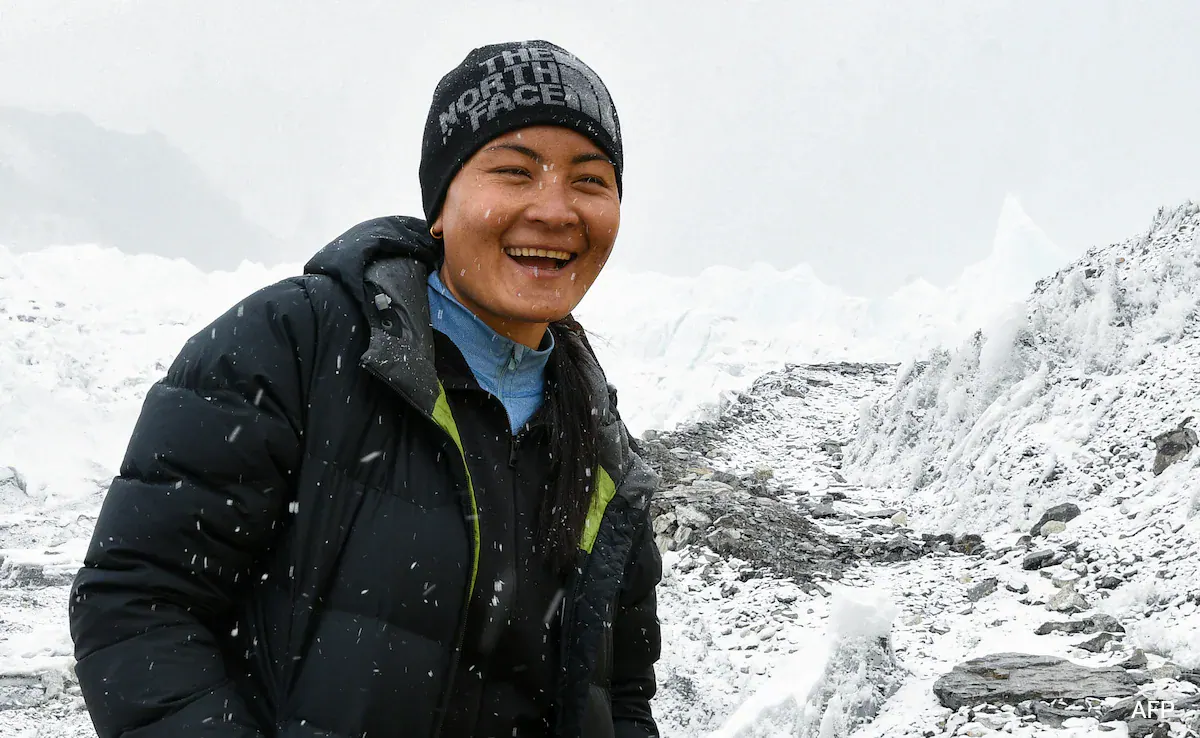Phunjo Lama, a Nepali mountaineer from the remote village of Chhokangparo in the Tsum Valley of Manaslu region, has reclaimed the record for the fastest woman to scale Mount Everest.
She completed the climb in just 14 hours and 31 minutes, starting from the base camp at 3:52pm on Wednesday and reaching the summit at 6:23am local time on Thursday.
Ms. Lama previously set the record for the fastest woman to scale a Himalayan peak in 2018, achieving the feat in 39 hours and 6 minutes. With her latest accomplishment, she has now broken her own record and solidified her position as one of the most accomplished female mountaineers in the world.
After her record was broken by Ada Tsang Yin-hung in 2021, who scaled the peak in 25 hours and 50 minutes, Ms. Lama had decided to reclaim her title before this climbing season started.
According to Shiva Bahadur Sapkota, general secretary of the Everest Summiteers Association, Ms. Lama had set her sights on regaining her position as the fastest woman to climb Everest.
Ms. Lama, a single mother in her thirties, has a background in mountaineering, having trained in the Swiss Alps and Nepal’s Himalayas. She summited Everest on the occasion of Buddha Jayanti, a significant Buddhist festival, and used her achievement to promote world peace.
In an earlier statement, Ms. Lama expressed her desire to use her climbing skills to promote women’s empowerment in Nepal and inspire other young girls to pursue their dreams. She believes that anything is possible with determination and hard work, and hopes to become a mentor for other young women who aspire to become climbers.
As the Himalayas prepare for the upcoming spring climbing season, Nepal has introduced a new set of rules to ensure the safety of mountaineers. This comes after a deadly year in which 18 lives were lost on Everest, with five bodies left on the mountain.
To address this issue, Nepali officials have announced that all climbers must now carry small, passive tracking devices that can be sewn into their jackets. Unlike traditional GPS devices, these trackers do not require power to function, making them ideal for use in remote and rugged areas.
These trackers can detect signals from packed snow up to 20 yards away, and can be further detected from the air using a handheld detector. The aim is to improve communication and response times in the event of an emergency, ultimately reducing the risk of accidents and fatalities on the mountain.










